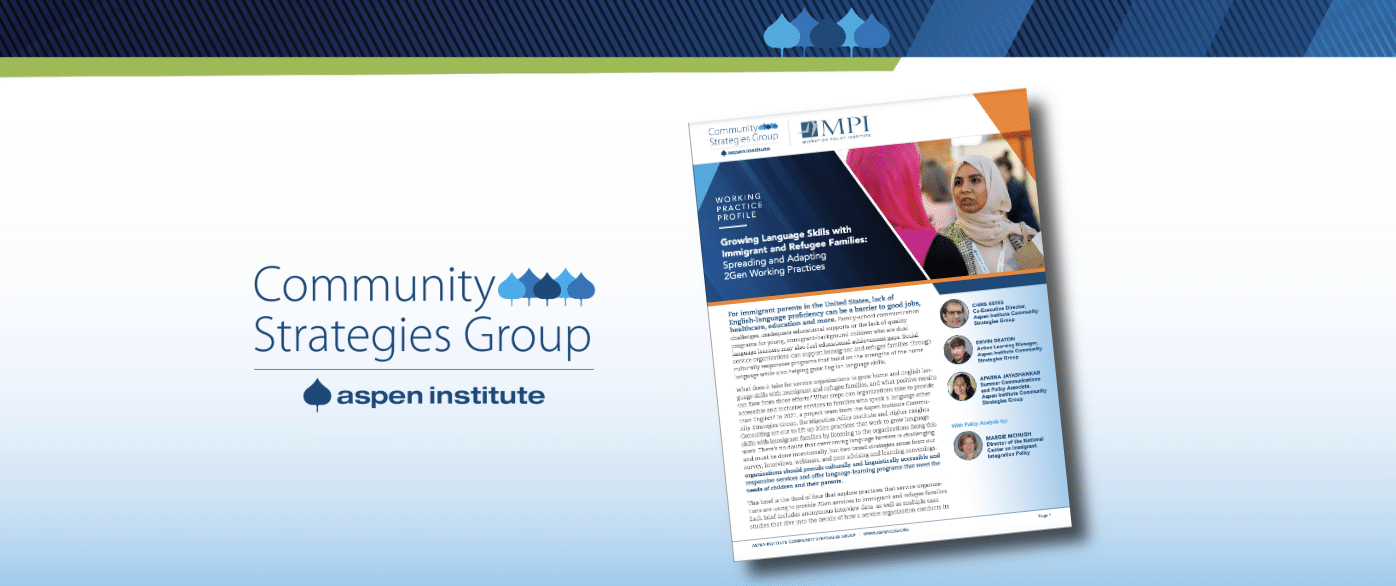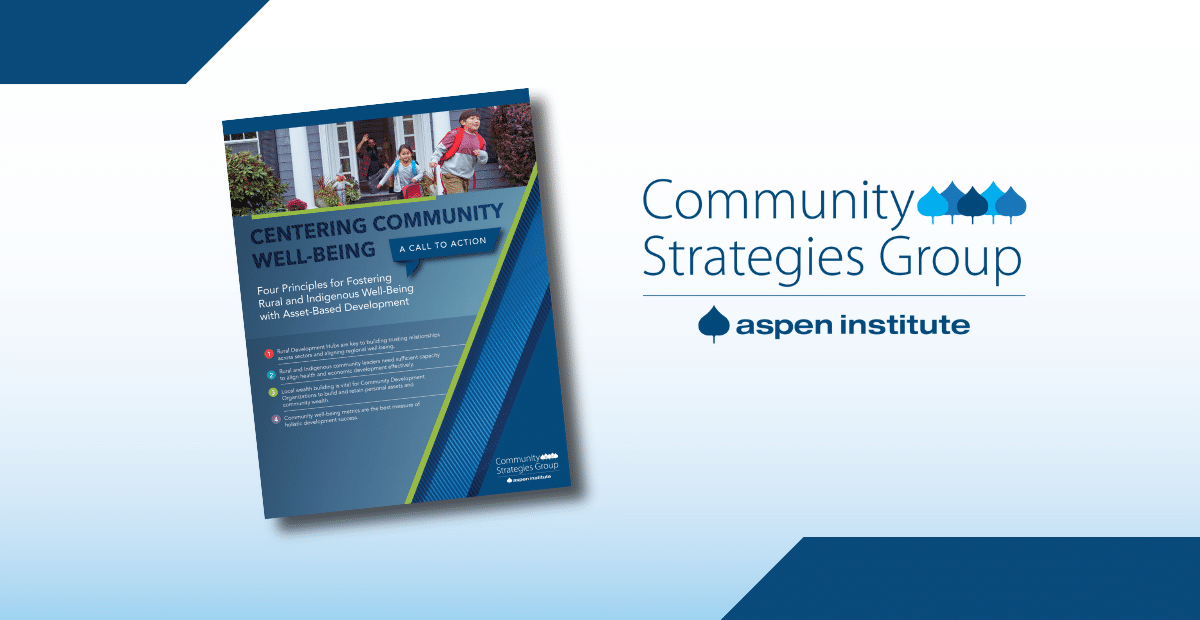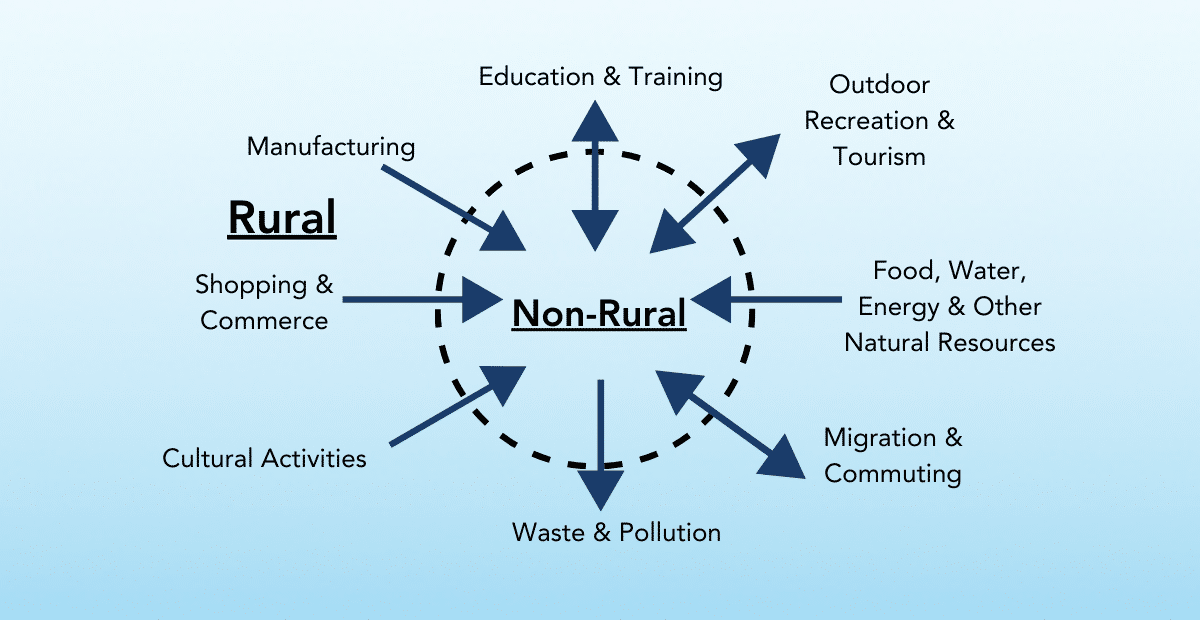View this Publication
What can be done to help immigrant families with the language barrier as they work on improving their language skills? Our brief, “Growing Language Skills with Immigrant and Refugee Families,” focuses on the linguistic challenges many face as they try to acclimate to life in the United States or abroad when their native language is no longer dominant in their surroundings. From designing ESOL programs and curricula around the needs of families to recognizing and accounting for dialects when sharing resources or providing services, we took an in-depth look at how we can use #2GenImm approaches to help families overcome the language barrier.
Our Family Economic Success briefs capture learnings on the best organizational strategies to provide 2Gen services to immigrant and refugee families from a year-long project, including four webinars and peer learning sessions.
Growing Language Skills with Immigrant and Refugee Families focuses on the linguistic challenges many face when their native language is no longer dominant in their surroundings. This is just one brief within a series; other topics include building trust, using cultural competency to best support these groups, and responding to differing immigration statuses.
In October 2021, the Aspen Institute Community Strategies Group hosted an event on growing language skills in partnership with the Migration Policy Institute and Ascend at the Aspen Institute. This brief builds on the event; the video recording is below.
What is the 2Gen approach?
By working with families to solve problems, access new resources, and sharpen existing talents and skills, the 2Gen approach creates experiences and opportunities for all families to reach their full potential and for communities to thrive economically and socially.
2Gen strategies service organizations can use to help immigrant and refugee families with the language barrier:
- Create programming that is responsive to the needs and developmental trajectories of dual-language learning children and effectively engages with their families.
- Design your ESOL program and curriculum around the needs of families, whether that means employment, being able to communicate better with teachers, or a different need. These needs will change with time, so the program should be flexible.
- Create spaces for program participants with common life experiences (e.g., those who are parents) to allow them to connect, build bonds, share resources and ideas and build their network. This can be both inside and outside the ESOL classroom.
- Grow staff-family relationships by having linguistically and culturally competent staff intentionally connect with families through Home Visiting programs, Pre-K, or other programming focused on supporting two-generation success. Sincerity and empathy will help show families that the organization cares about them.
- Translate written and online resources for immigrant and refugee families.
- Hire bilingual staff and/or use qualified professional or volunteer interpreters for interactions with low English proficiency caregivers and their children.
- Recognize and account for dialects when sharing resources or providing services. Ensure that translation services and classroom materials are suited for the different regional variants or dialects spoken by families in the program. Also, aim to hire a diverse team of staff who speak the different dialects and reflect participants’ cultural and linguistic backgrounds.
- Honor and celebrate language and culture. Language can serve as a bridge between different cultures, and participants may share the joy of finding someone else who also speaks their language.
- Show families that you value them. ESOL programs should be strengths- and assets-based. Regularly ask for family input to revise future iterations of the program.
Event Recording
In this recording, organizations that are successfully growing 2Gen language skills share:
- How nonprofits can engage parents in early childhood development topics and improve their skills and career prospects;
- How schools can implement a dual language instructional model;
- How service organizations can translate all resources they offer and be cognizant of the different dialects that families may speak.
Featured Experts
Banu Valladares: Executive Director, Charlotte Bilingual Preschool
Karissa Coltman Burnett: Assistant Director of Family Advancement, CAP Tulsa
Karen Murrell: President, Higher Heights Consulting
Chris Estes: Co-Executive Director, Aspen Institute Community Strategies Group
Devin Deaton: Action Learning Manager, Aspen Institute Community Strategies Group
Aparna Jayashankar: Communications and Policy Associate, Aspen Institute Community Strategies Group
Margie McHugh: Director of the National Center on Immigrant Integration Policy, Migration Policy Institute








